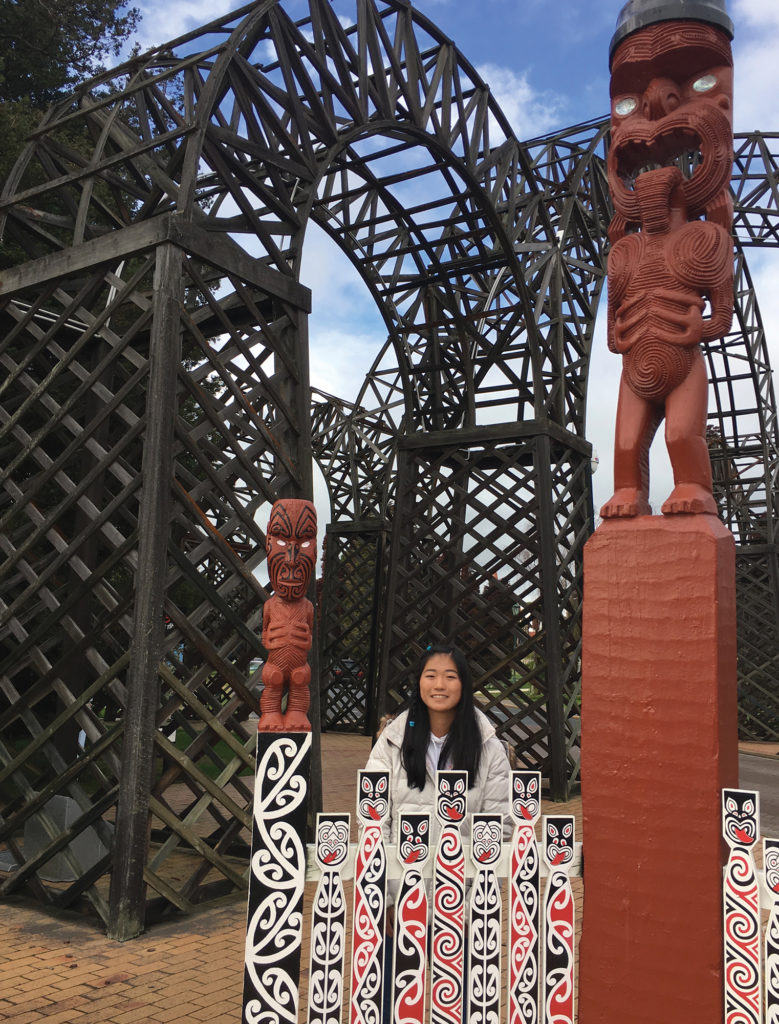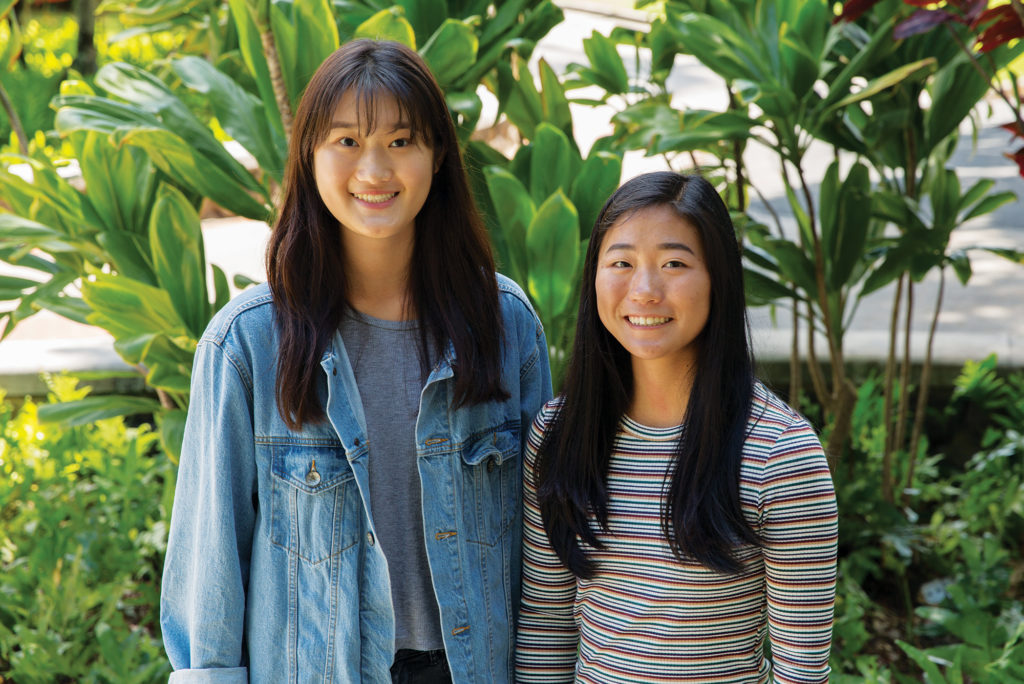This past summer, our group of 18 traveled to New Zealand, a country with a vibrant culture, history and community. Most of us have lived in Hawai‘i our whole lives, trapped in a bubble, so the thought of expanding our horizons had us excited. We arrived with the purpose of learning about New Zealand culture and giving back. Over the course of our three-and-a-half week journey together, the people of New Zealand opened our eyes to a new perspective on what it means to be a global citizen.

Our visit to Christchurch taught us what it means to be truly resilient. In 2011, Christchurch was devastated by two massive earthquakes, the combined effect of which killed almost 200 people and demolished most of the city’s buildings. We had the opportunity to visit EPIC, a cluster of independent companies focused on helping the community. The organization represents the community’s ability to heal and rebuild. Not only are the people of New Zealand repairing, but they go beyond the basic definition of resilience by actively working together to better themselves and their community. While visiting EPIC, we sat in on a Coffee and Jam session, a designated time for people to pitch their creative, community-oriented ideas to the public to get feedback and support while sipping coffee or nibbling on snacks. Coffee and Jam taught us to think big and not limit our ideas to what we think is possible – there are millions of unique and engaging ways that we can better our communities, and we were inspired.
A week later, we set off from Christchurch and headed to Hamilton to expand our knowledge of sustainability. There, we learned about the livestock industry and how farmers are partnering with the government in order to ensure that their practices will not harm the environment. We visited the OWL farm, operated by St. Peters, our host sibling’s school, and strolled through lush green pastures that seemed to stretch for miles. At the OWL farm, we learned more about the livestock industry. Cow urine contains high levels of nutrients that cannot be absorbed by the grass and therefore runs into the underground aquifer, contaminating it with nitrogen. Through research, farmers have found ways to naturally filter the runoff with marsh plants. From this experience, it was clear that we need to be more aware of our responsibility to the earth and the other people who live on it. Being aware of the impact our actions have on the environment is not only important now, but dire for the sake of future generations.

In a blink of an eye, we were off to Auckland, unaware of what to expect. In our last 10 days, we were immersed in Maori culture. We learned Maori songs, stories and games, while also having opportunities to share Hawaiian culture in the form of hula and oli. Constantly switching our roles as students and teachers allowed us to bond on a cultural level. Learning about Maori culture reminded us of the beauty of ethnic diversity. Teaching hula workshops at Te Oro, a music and arts center, was a humbling experience. Our cultural backgrounds were different, but we were able to connect with others to become friends, dancing and laughing together. We wished to bring home the Maori spirit which preserves their native culture.
On this trip, we learned about community and resilience alongside the devoted volunteers who were motivated from a countrywide passion to create change. Being able to volunteer at so many different locations and getting to know a multitude of amazing people was extremely rewarding. We are incredibly thankful to everyone who made this trip possible for us, because every moment was a learning experience. We have learned more about the world and have broadened our understanding of what it takes to be a global citizen.
